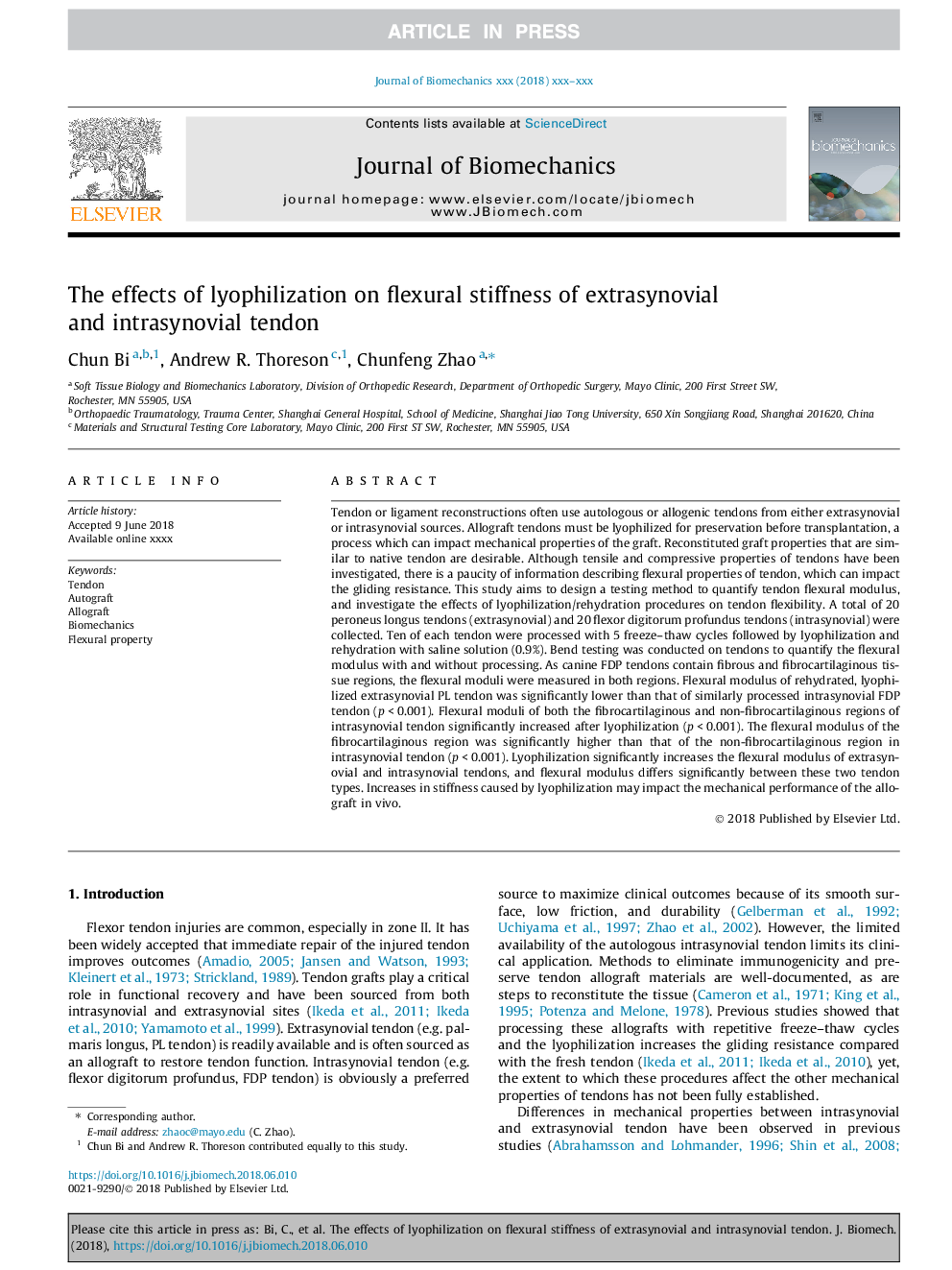| کد مقاله | کد نشریه | سال انتشار | مقاله انگلیسی | نسخه تمام متن |
|---|---|---|---|---|
| 7235819 | 1471088 | 2018 | 6 صفحه PDF | دانلود رایگان |
عنوان انگلیسی مقاله ISI
The effects of lyophilization on flexural stiffness of extrasynovial and intrasynovial tendon
ترجمه فارسی عنوان
اثرات لیوفولیزاسیون بر سفتی خمشی تاندون اضطراب و انتراسیوویو
دانلود مقاله + سفارش ترجمه
دانلود مقاله ISI انگلیسی
رایگان برای ایرانیان
کلمات کلیدی
موضوعات مرتبط
مهندسی و علوم پایه
سایر رشته های مهندسی
مهندسی پزشکی
چکیده انگلیسی
Tendon or ligament reconstructions often use autologous or allogenic tendons from either extrasynovial or intrasynovial sources. Allograft tendons must be lyophilized for preservation before transplantation, a process which can impact mechanical properties of the graft. Reconstituted graft properties that are similar to native tendon are desirable. Although tensile and compressive properties of tendons have been investigated, there is a paucity of information describing flexural properties of tendon, which can impact the gliding resistance. This study aims to design a testing method to quantify tendon flexural modulus, and investigate the effects of lyophilization/rehydration procedures on tendon flexibility. A total of 20 peroneus longus tendons (extrasynovial) and 20 flexor digitorum profundus tendons (intrasynovial) were collected. Ten of each tendon were processed with 5 freeze-thaw cycles followed by lyophilization and rehydration with saline solution (0.9%). Bend testing was conducted on tendons to quantify the flexural modulus with and without processing. As canine FDP tendons contain fibrous and fibrocartilaginous tissue regions, the flexural moduli were measured in both regions. Flexural modulus of rehydrated, lyophilized extrasynovial PL tendon was significantly lower than that of similarly processed intrasynovial FDP tendon (pâ¯<â¯0.001). Flexural moduli of both the fibrocartilaginous and non-fibrocartilaginous regions of intrasynovial tendon significantly increased after lyophilization (pâ¯<â¯0.001). The flexural modulus of the fibrocartilaginous region was significantly higher than that of the non-fibrocartilaginous region in intrasynovial tendon (pâ¯<â¯0.001). Lyophilization significantly increases the flexural modulus of extrasynovial and intrasynovial tendons, and flexural modulus differs significantly between these two tendon types. Increases in stiffness caused by lyophilization may impact the mechanical performance of the allograft in vivo.
ناشر
Database: Elsevier - ScienceDirect (ساینس دایرکت)
Journal: Journal of Biomechanics - Volume 76, 25 July 2018, Pages 229-234
Journal: Journal of Biomechanics - Volume 76, 25 July 2018, Pages 229-234
نویسندگان
Chun Bi, Andrew R. Thoreson, Chunfeng Zhao,
